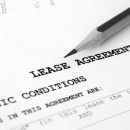
How does a commercial property lease work?
A commercial property lease is an agreement between a landlord and an occupier. The lease allows a business owner to legally occupy a commercial property. Sorting out a lease can be a complicated task and will include essential information such as the property rent, details about the space and the responsibilities of the occupier and the landlord.
We have created a practical guide for people with little experience of leasing a business premises to answer any burning questions you may have.
Before you start…
Where can I find a commercial property to lease?
Right here on this website! Just click through to our homepage and use the simple search engine to find the perfect property in your area. Make sure you use the different search options to meet your requirements.
How do I know if the property will fit my needs?
Before making an application for the tenancy, it is essential that you check with the landlord of the property that they agree on the trade you want to carry out. Ask the landlord relevant questions to ensure that you can run your business smoothly.
Will I need to obtain planning permission?
There are different Local Authority classes attached to each property type. For example, all retail properties do not fall under one category. A property classes as A1 can be used for general retail use such as a hairdressers, dry cleaners or green grocers whereas an A3 retail property is suitable for food and drink sales.
You should be aware that even if the landlord confirms you can use the property for your business, there may not be the correct planning permission in place to carry this out. We suggest that you contact your Local Authority Planning Department to confirm.
What the lease should cover…
The length of the lease
Rent
Information regarding your rent should cover the price, when the rent is due and whether VAT is payable. The terms and conditions may also cover whether there may be a rent increase or any rent reviews carried out.
Insurance
The landlord should arrange the insurance for the property and you would be responsible for paying your part as outlined in the lease. You will also need to compensate for your own contents insurance.
Repairs
In general, as an occupier you are responsible for all repairs however this is all dependent on the type of property and the conditions of the property you are leasing.
Like any rental, at the end of the lease you are expected to leave the property in a good state in terms of conditions and repairs.
Alterations
You should confirm with the landlord before you make any alterations to a property. The terms and conditions will be outlined in the lease. You should also be aware that alterations may require planning permission which would need to confirm as suggested before.
When the lease is over…
The law entitles occupiers to be able to renew their lease at the end of a fixed term; however the landlord may contract out of the relevant statutory provisions removing your right to renew the lease. The landlord can also refuse to renew your lease if you’re in breach of your obligations.
You should be aware that if you are any of the following tenants, you don’t have automatic rights to renew:
- you’re a farm business tenant
- you’re a mining tenant
- you’re a service tenant employed by the landlord
- you’re on fixed-term tenancy of 6 months or less
- you waived your right to renew at the start of your lease
